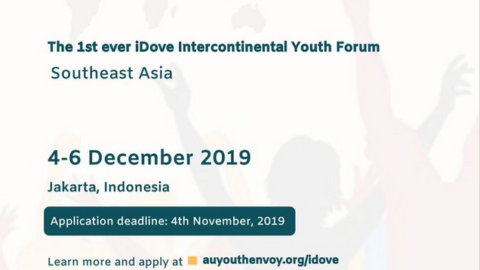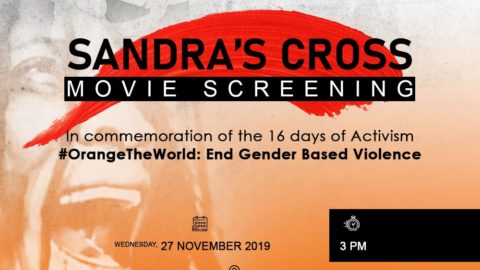She was awarded the Pulitzer Prize in 1980. Janet Cooke’s story was classic and brilliant and she knew that. Titled – Jimmy’s World, Janet skilfully told the story of an 8 year old that had been hooked on heroine since he was 5. The story drew massive interest and the then Mayor of Washington District Council asked that the boy be found. It turned out that Janet had only cooked the story from the convenience of her room. There was no Jimmy and there was no real story. This was years before the phenomenon now referenced today as citizen journalism. The Pulitzer was predictably withdrawn. For the uninitiated, the Pulitzer given since 1917, is one of the most coveted prizes in journalism till date.
Back home, the rise of citizen journalism is defining what news is now! On the 24th of March, someone had initiated a broadcast saying – “3 corpses that has been beheaded suspected to be females was thrown from a Range-Rover Sport Jeep @ Ijebu-Ode–Ibadan road just now…One is fair in complexion with Unilag School I.D card (Yetunde Ajao) inside her hand-bag, the second is an OOUITE student (Oyindamola Esan), also fair in complexion and kinda tall and the last one is short, plumpy and dark with no identity… Please if you know any of these girls kindly notify their friends or family member 2come right away and remove their corpse. On-coming vehicles can run over them @ anytime because they were dumped by the road side….. May God save Ladies of nowadyz and the way they hustle for money, and to those that still do hot-jobs”. It turned out that it was an impish citizen journalist at work as investigations by people within that axis and the police command in Ogun state revealed that nothing of such happened. Surprisingly some blogs furthered the broadcast by making news of it and had pictures of some random ladies to supplement the story. Creditable news organisation helped arrest the hoax that the message turned out to be by reporting findings from people and the police command and some who were not sure simply avoided the story. And like they say in journalism, not reporting a story is a story itself!
The explosion of new technologies and new media outlets has debatably made journalists of everyone. It’s now possible to own contents especially when the news is breaking at locations or time when a trained journalist is not within reach. It pays because it gets the news out there and in cases of emergency, it aids nippy reaction. There is however the conflicting side to it. A biased and unsubstantiated report can spark outrage and riot as was (almost) the case after the 2011 elections. Fleet Street – the metonym for the English press has also had its fair share. The riot that followed after the death of Mark Duggan through well organised chaos is a case in point. The story no longer belonged to the Fleet Street practitioners. They missed the planned violence!
Before now, news dissemination was unilateral. News rooms told the people what they had for them and the viewers, readers or listeners’ opinion did not count for much. The media was the gatekeeper and it decided what people deserved to know or not. Citizen journalism has changed this. The people now own content, there is a change in the way the media is now consumed. In apparent instances, citizen journalists are giving the news that mainstream journalists refuse to make available. The action of the latter is understandable given the ownership burden and interest that comes with it. I am not sure a government by the army like the Sani Abacha junta would have survived for more than a few months with the onslaught of a new media age like it managed to for a while back then. It was easy to clamp on a newspaper house then; how do you do clamp on citizen journalists whose only address are their Internet Protocol (IP) addresses?
In the age of citizen journalism, there are now blogs and web 2.0 contents that rival favourably newspaper houses in terms or earnings and outputs. There is today a redefinition in the role of the mainstream journalist. The single room of a blogger has become the newsroom. The mainstream media did all with care and checks and editors are always at hand to check the story for content and grammar; not for a typical citizen journalist. Investigative journalism is not in the ethos of an everyday citizen journalist. He sees an accident. He grabs his phone, snaps the picture, shares it and moves on with his life. He never gets to find out if the victim survived, or what really caused the accident. He never knows if the victim is an only child or if that is his 20th accident on that same route! The citizen journalist possibly has no clear beat; he only reports what catches his attention per time. They are not driven by profit like in the case of mainstream journalism. Journalists are now everywhere, no longer would the people be kept in the dark about any issue. Mainstream journalists cover, citizen journalists are motivated by the need to share. Instantaneousness, brevity and fun seem to be the watchword for them. The producer and consumer are now one and same. It is in the interest of the people and the conventional press to have mainstream journalists acknowledge the power of citizen journalists and give the public information irrespective of the source. Asides the regular means of sourcing news, going to the public for content is a decent approach now. The User Generated Content is ideal.
Citizen journalism improves the democratic culture given the diversity of opinions it permits. A read through the comment section on www.punchng.com for instance would show to the divergence of opinion and the abusive angle it often times tilts to. This is an age where no matter how much people are fed, they are always message-hungry. It is this gap that the citizen journalist fills. It is by the people, of the people and for the people. The participatory culture of today’s news form is what continues to expand the reach of citizen journalism and it explains why a reaction to an article can be lengthier than the article itself. Only a media outlet that plans to be antiquated will go to press without checking trending issues on creditable social media outlets.
If truly news is sieved through people’s cultural bias, religious prism and previous experience and the media is known to set the agenda then it means the citizen journalist role is a dangerous and controversial one. It is thus the responsibility of every citizen journalist to play the watchdog role over one another to ensure fake reportages are nipped in the bud early by a deluge of reactions before it causes mayhem. Or else, our own Cooke would pitch nations against nations or tribe against tribe. The danger again is that we are all exposed to both the right and wrong information. It is now the obligation of the public to analyse what is read online and verify same because the veracity of news story can no longer be guaranteed and no one may possibly be held liable.
I am obligated to ask – Before the end of the next decade, will citizen journalism have swallowed mainstream journalism practice? If Agnew Spiro, the 39th Vice president of the United States, were to redefine the press in the light of citizen journalists, I am certain he would term his earlier description of journalists as ‘nattering nabobs of negativism’ far below the intended portrayal.
__________________
Sola Fagorusi is a youth development advocate, freelance writer, accomplished debater cum coach. The Obafemi Awolowo University graduate has about 10 years experience in social entrepreneurship which straddles leadership, good governance cum anti-corruption and adolescent reproductive health. The Leap Africa alumnus is also a trained peer educator, a DESPLAY alumnus and co-facilitator. For 2 years now, he has been a technical consultant and lead judge on the Intra-Faith Peace Youth TV Debate Project facilitated by Youngstars Foundation and the British High Commission. To read his full profile, click here






